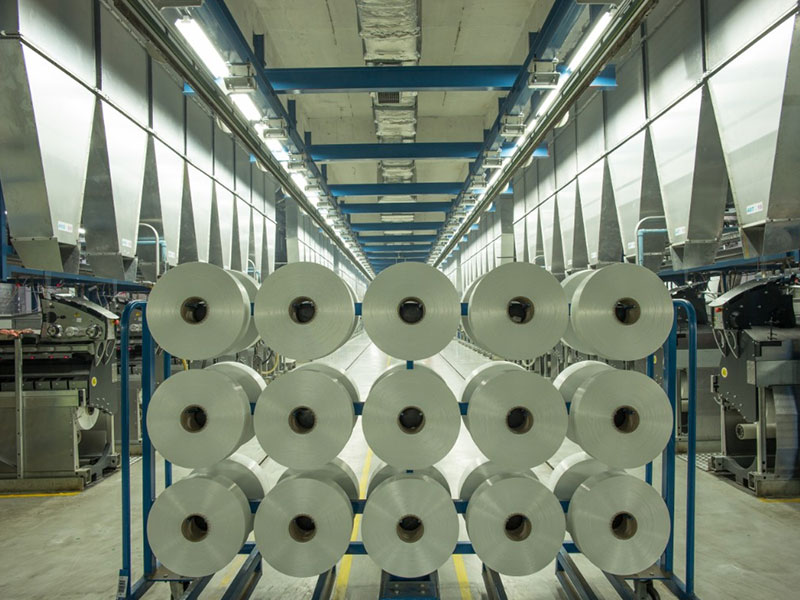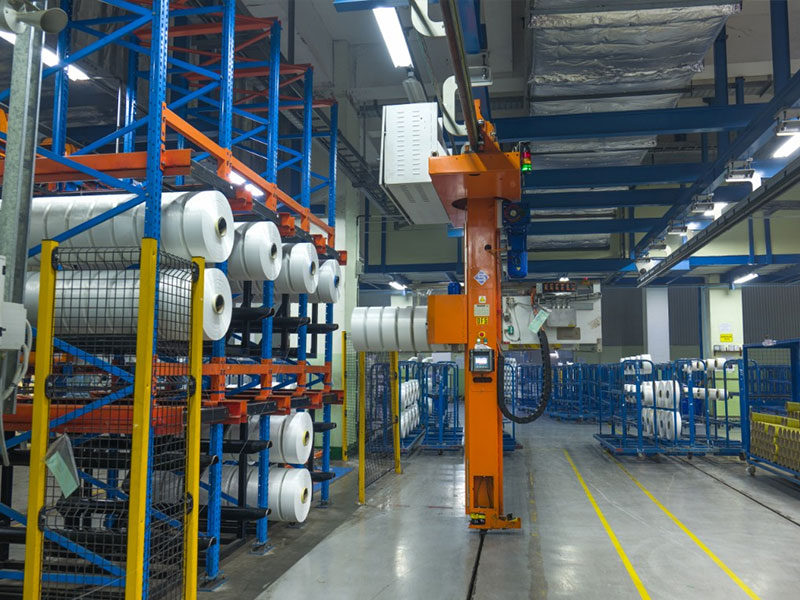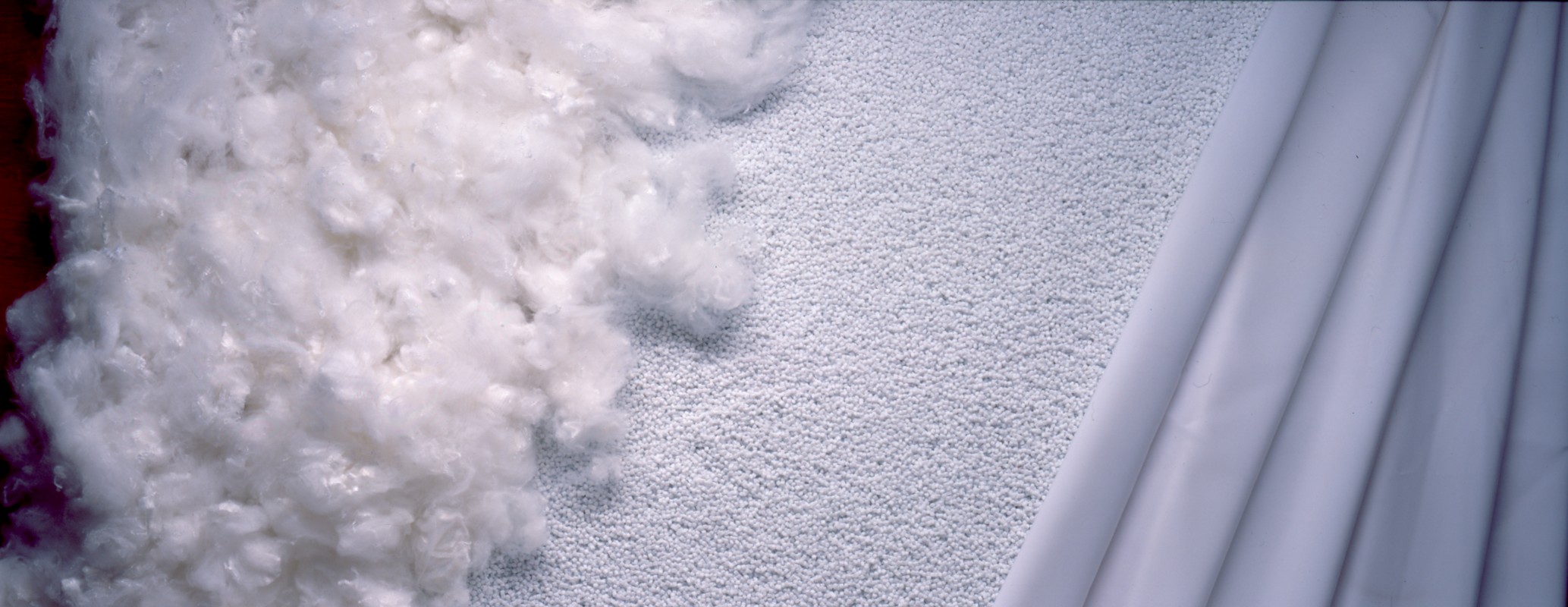Polyester Fiber
Polyester fibers are used in the manufacture of many products, including clothing, home furnishings, industrial fabrics, filters, tire cord fabrics, and nonwoven fabrics. Polyester has several advantages over traditional materials such as cotton. It does not absorb moisture, but does absorb oil; this quality makes polyester the perfect fiber for the application of water, soil, and fire resistant finishes. Its low absorbency also makes it naturally resistant to stains. Polyester clothing can be preshrunk in the finishing process, and thereafter the fabric resists shrinking and will not stretch out of shape. The fabric is easily dyeable and is not damaged by mildew. Textured polyester fibers are an effective, non-allergenic insulator, so the material can be used for filling pillows, quilting, outerwear, and sleeping bags.
Polyester fiber is manufactured by one of several methods. The one used depends on the form the finished polyester will take. The four basic forms are filament, staple, tow, and fiberfill. In the filament form, each individual strand of polyester fiber is continuous in length, producing smooth-surfaced fabrics. In staple form, filaments are cut to short, predetermined lengths. In this form polyester is easy to blend with other fibers. Tow is a form in which continuous filaments are drawn loosely together. Fiberfill is the voluminous form used in the manufacture of quilts, pillows, and outerwear. The two forms used most frequently are filament and staple. Indorama produces all these types of polyester products.
The global demand for all types of fibers (cotton, polyester, viscose, nylon, olefin, acrylic, silk, wool) is about 100 million tons. Of this, polyester accounts for about 55 million tons, or almost 55% of all fiber demand. In the 90s, polyester’s share was about 50%. This tremendous evolution reflects polyester’s versatility, affordability, and growing spectrum of applications.
Fibers serving diverse markets
| End Markets | End Use Application | |||
| Automotive (Polyester, PA 66) |
|
 |
 |
 |
| Personal Care (Polyester, PP) |
|
 |
 |
 |
| Home (Polyester) |
|
 |
 |
 |
| Apparel (Polyester) |
|
 |
 |
 |
| Industrial (Polyester, PA 66, PP, PLA) |
|
 |
 |
 |




